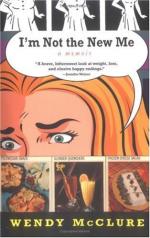When the last chapter of the last book was done, it occurred to me to wonder whether I might ever be able to afford to get for a week or two where the thermometer went below ninety degrees in summer. But this was a wild and baseless dream, whose irrationality I quickly recognized. For such books as those into which I had been coining a year of my young strength and heart, I received the sum of one hundred dollars apiece. The “Gypsy” publisher was more munificent. He offered one hundred and fifty; a price which I accepted with incredible gratitude.
I mention these figures distinctly, with the cold-blooded view of dimming the rosy dreams of those young ladies and gentlemen with whom, if I may judge by their letters, our country seems to be brimming over.
“Will you read my poem?” “Won’t you criticize my manuscript?” “I would like to forward my novel for your perusal.” “I have sent you the copy of a rejected article of mine, on which I venture to ask—,” etc., etc. “I have been told that all I need is Influence.” “My friends think my book shows genius; but I have no Influence.” “Will it trouble you too much to get this published for me?”
“Your Influence—” and so on, and so on, run the piteous appeals which every successful author receives from the great unknown world of discouraged and perplexed young people who are mistaking the stir of youth or vanity, or the ennui of idleness, or the sting of poverty, for the solemn throes of power.
What can one do for them, whom no one but themselves can help? What can one say to them, when anything one says is sure to give pain, or dishearten courage?
Write, if you must; not otherwise. Do not write, if you can earn a fair living at teaching or dressmaking, at electricity or hod-carrying. Make shoes, weed cabbages, survey land, keep house, make ice-cream, sell cake, climb a telephone pole. Nay, be a lightning-rod peddler or a book agent, before you set your heart upon it that you shall write for a living. Do anything honest, but do not write, unless God calls you, and publishers want you, and people read you, and editors claim you. Respect the market laws. Lean on nobody. Trust the common sense of an experienced publisher to know whether your manuscript is worth something or nothing. Do not depend on influence. Editors do not care a drop of ink for influence. What they want is good material, and the fresher it is, the better. An editor will pass by an old writer, any day, for an unknown and gifted new one, with power to say a good thing in a fresh way. Make your calling and election sure. Do not flirt with your pen. Emerson’s phrase was, “toiling terribly.” Nothing less will hint at the grinding drudgery of a life spent in living “by your brains.”
Inspiration is all very well; but “genius is the infinite capacity for taking pains.”
Living? It is more likely to be dying by your pen; despairing by your pen; burying hope and heart and youth and courage in your ink-stand.




